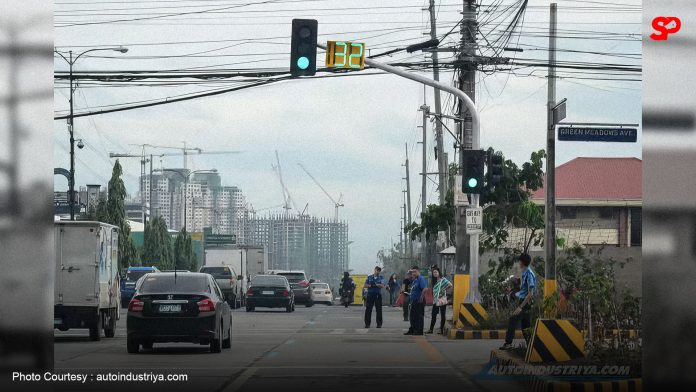By Xander Ledesma
Cebu City finds itself at a crossroads, both literally and metaphorically, as it navigates the complexities of a proposed compromise agreement concerning its modern traffic light project. The proposed settlement aims to resolve financial obligations linked to the first two phases of the city’s ambitious modernization effort, which seeks to replace its aging traffic signal systems.
The project, initially launched in 2020, aimed to overhaul Cebu’s 40-year-old traffic light system with modern technology, including high-definition cameras, artificial intelligence-driven traffic flow detection, and underground cables. These improvements were envisioned as a key part of Cebu’s push to modernize its infrastructure, and in particular, to manage its notorious traffic congestion.
Cebu’s history with traffic congestion goes back decades. As one of the most densely populated urban centers in the Philippines, Cebu City has consistently struggled with issues of urban planning and traffic management. Its central business district, a commercial hub for the Visayas and Mindanao regions, is often gridlocked during peak hours, causing significant delays and economic losses. Infrastructure inadequacies and the city’s rapid growth have been blamed for these issues, leading to efforts such as the digital traffic system upgrade.
However, the implementation of the modern traffic system has not been without controversy. According to reports, the supplier, Triune Electronics Systems Inc., and Cylix Tech CCTV, delivered traffic signal upgrades at over 50 intersections across the city, yet the project has faced delays, incomplete installations, and questions over the efficacy of the system.
In fact, delays in activating critical components of the system, including the full functionality of AI-driven traffic management, have left many questioning the value of the project thus far. Councilor Jocelyn Pesquera has been vocal in her call for a fraud audit to investigate whether the terms of the contract were properly met, pointing out that the initial phases have not delivered as promised.
Compounding the issue is the strained relationship between the city government and the supplier, with threats of legal action over unpaid balances. The proposed compromise, worth P50 million, seeks to settle the unpaid amounts in exchange for activating the equipment and forgoing any lawsuit against the city.
Historically, Cebu’s approach to urban infrastructure has reflected the larger issues of urban governance in the Philippines. The city, like many others in the country, has often struggled with balancing rapid urbanization with adequate infrastructure development. Poor project planning, delayed implementation, and a lack of accountability have historically plagued public works in the Philippines. Projects often face cost overruns and delays, leading to public dissatisfaction.
This isn’t the first time Cebu City has had to deal with infrastructure controversies. Previous attempts to upgrade public transportation and infrastructure have also faced similar scrutiny. For example, in 2018, Cebu City’s Bus Rapid Transit (BRT) system was placed under review after concerns were raised about its feasibility and implementation. These instances have raised the broader question of whether the city is adequately prepared for the demands of modernization in a rapidly urbanizing region.
In light of this context, the current issue involving the traffic light project can be seen as part of Cebu’s ongoing struggle to implement large-scale urban improvements efficiently and transparently. Mayor Raymond Alvin Garcia’s promise to ensure that the proposed compromise is advantageous to the city underscores the administration’s recognition of these challenges. However, with public dissatisfaction growing and questions lingering over the value for money the city has received thus far, the administration’s ability to handle this situation could set a precedent for future infrastructure projects.
As Cebu continues to grow, the success or failure of projects like the traffic light system will have lasting impacts on the city’s ability to manage its urban environment effectively. Whether this compromise represents a positive step forward or just another chapter in Cebu’s troubled infrastructure history remains to be seen.
In the end, the task force’s ongoing review and the City Council’s forthcoming deliberations will play a critical role in determining how the city resolves its financial obligations and ensures the project delivers on its promise to modernize traffic management in Cebu City.

